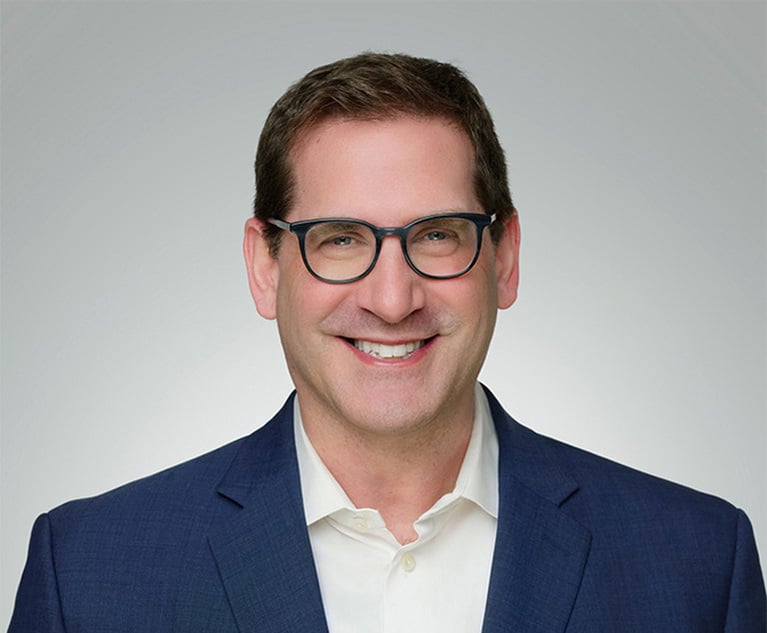Is a 2-Week Summer Associate Program Even Worth It? Kirkland Isn't the Only Firm That Thinks So
Kirkland & Ellis, Sidley Austin, Baker & Hostetler and others aggressively whittled down their summer programs this week. With firms already operating remotely, observers said that's a pretty good option.
May 07, 2020 at 06:44 PM
4 minute read
 Photo: Shutterstock
Photo: Shutterstock
Kirkland & Ellis, Sidley Austin, Baker & Hostetler and other law firms announced this week that they are dramatically shortening their traditional summer associate programs—which are already being held virtually given the ongoing COVID-19 pandemic.
Kirkland's program will last two weeks with a June 15 start date, while Sidley's summer associate programs will be at least four weeks long, the firm said Thursday. Sidley's program in New York will start July 6 and end July 31.
Both firms are paying their associates what they were set to receive when the programs were running at full length. Kirkland is extending job offers to associates who graduate from law school in 2021, while associates who graduate in 2022 will be able to participate in next year's program.
Baker & Hostelter, which announced broad cost-cutting measures Thursday, is also slashing the length of its (now virtual) summer associate program, making it four weeks.
Best Best & Krieger, a California-based law firm that represents municipal governments and public agencies, cut its program to two weeks because of the inherent limits of a remote program, said Danielle Sakai, the firm's chief talent officer. A major part of Best's summer program is that the associates attend city council meetings and meet with public officials in person.
"That's not something we can provide safely at this point in time," Sakai said.
With in-person programs already a thing of the past for most firms in 2020, is it even worth the trouble to invite summer associates for such short periods?
Scott Westfahl, a professor of practice and the director of Harvard Law School's executive education program, said the answer is yes.
A two-week virtual program is better than no program at all, he said. Westfahl said a short visit can be useful, noting that law firms in the past have brought past summer associates back for two-week programs designed to reconnect with partners.
"If they are thoughtful about it, [the program] can provide a meaningful experience to build their networks among each other and among the lawyers at the firm," Westfahl said of the firms' efforts.
With Big Law already operating remotely amid the pandemic and shutdown orders across the country, two weeks might be the ideal amount of time, said Nathan Peart, the managing director of Major, Lindsey & Africa's associate practice group.
"It makes sense to condense it. It's very much about the substance over the length," Peart said.
He said meeting the goals of such programs—recruiting new lawyers and building a talent pipeline—are more important than any arbitrary stretch of time. If a firm is smaller, having only a one-week virtual program might even make sense, he added.
"Right now, there is no right or wrong answer," he said.
Westfahl said it's even possible these remote, mini-summer associates can find some meaningful work to do.
"A student could reasonably complete a research memo on a point of law in a two-week time frame," Westfahl said. "It'll take some preplanning and organization to identify the work projects that can be done in a two-week period."
Sakai said her firm will use the two weeks to get to know its summer associates and teach them about other aspects of the business of law that aren't normally covered, like practice management, law firm financials and the importance of marketing.
"Two weeks felt like the right amount," Sakai said. It would allow the summers to get a meaningful experience. We didn't feel it was appropriate to cancel it."
An earlier version of this story reported that Sidley Austin might host summer programs this year that run fewer than four weeks. It was updated after a Sidley spokesperson clarified that summer associates would spend at least four weeks in the firm's virtual program.
Read More
From Canceled to 'Business as Usual,' Law Firms Go Their Own Way on Summer Associate Programs
This content has been archived. It is available through our partners, LexisNexis® and Bloomberg Law.
To view this content, please continue to their sites.
Not a Lexis Subscriber?
Subscribe Now
Not a Bloomberg Law Subscriber?
Subscribe Now
NOT FOR REPRINT
© 2025 ALM Global, LLC, All Rights Reserved. Request academic re-use from www.copyright.com. All other uses, submit a request to [email protected]. For more information visit Asset & Logo Licensing.
You Might Like
View All

O'Melveny, White & Case, Skadden Beef Up in Texas With Energy, Real Estate Lateral Partner Hires
5 minute read
Arizona Supreme Court Presses Pause on KPMG's Bid to Deliver Legal Services
Law Firms Mentioned
Trending Stories
- 1Morgan Lewis Says Global Clients Are Noticing ‘Expanded Capacity’ After Kramer Merger in Paris
- 2'Reverse Robin Hood': Capital One Swarmed With Class Actions Alleging Theft of Influencer Commissions in January
- 3Hawaii wildfire victims spared from testifying after last-minute deal over $4B settlement
- 4How We Won It: Latham Secures Back-to-Back ITC Patent Wins for California Companies
- 5Meta agrees to pay $25 million to settle lawsuit from Trump after Jan. 6 suspension
Who Got The Work
J. Brugh Lower of Gibbons has entered an appearance for industrial equipment supplier Devco Corporation in a pending trademark infringement lawsuit. The suit, accusing the defendant of selling knock-off Graco products, was filed Dec. 18 in New Jersey District Court by Rivkin Radler on behalf of Graco Inc. and Graco Minnesota. The case, assigned to U.S. District Judge Zahid N. Quraishi, is 3:24-cv-11294, Graco Inc. et al v. Devco Corporation.
Who Got The Work
Rebecca Maller-Stein and Kent A. Yalowitz of Arnold & Porter Kaye Scholer have entered their appearances for Hanaco Venture Capital and its executives, Lior Prosor and David Frankel, in a pending securities lawsuit. The action, filed on Dec. 24 in New York Southern District Court by Zell, Aron & Co. on behalf of Goldeneye Advisors, accuses the defendants of negligently and fraudulently managing the plaintiff's $1 million investment. The case, assigned to U.S. District Judge Vernon S. Broderick, is 1:24-cv-09918, Goldeneye Advisors, LLC v. Hanaco Venture Capital, Ltd. et al.
Who Got The Work
Attorneys from A&O Shearman has stepped in as defense counsel for Toronto-Dominion Bank and other defendants in a pending securities class action. The suit, filed Dec. 11 in New York Southern District Court by Bleichmar Fonti & Auld, accuses the defendants of concealing the bank's 'pervasive' deficiencies in regards to its compliance with the Bank Secrecy Act and the quality of its anti-money laundering controls. The case, assigned to U.S. District Judge Arun Subramanian, is 1:24-cv-09445, Gonzalez v. The Toronto-Dominion Bank et al.
Who Got The Work
Crown Castle International, a Pennsylvania company providing shared communications infrastructure, has turned to Luke D. Wolf of Gordon Rees Scully Mansukhani to fend off a pending breach-of-contract lawsuit. The court action, filed Nov. 25 in Michigan Eastern District Court by Hooper Hathaway PC on behalf of The Town Residences LLC, accuses Crown Castle of failing to transfer approximately $30,000 in utility payments from T-Mobile in breach of a roof-top lease and assignment agreement. The case, assigned to U.S. District Judge Susan K. Declercq, is 2:24-cv-13131, The Town Residences LLC v. T-Mobile US, Inc. et al.
Who Got The Work
Wilfred P. Coronato and Daniel M. Schwartz of McCarter & English have stepped in as defense counsel to Electrolux Home Products Inc. in a pending product liability lawsuit. The court action, filed Nov. 26 in New York Eastern District Court by Poulos Lopiccolo PC and Nagel Rice LLP on behalf of David Stern, alleges that the defendant's refrigerators’ drawers and shelving repeatedly break and fall apart within months after purchase. The case, assigned to U.S. District Judge Joan M. Azrack, is 2:24-cv-08204, Stern v. Electrolux Home Products, Inc.
Featured Firms
Law Offices of Gary Martin Hays & Associates, P.C.
(470) 294-1674
Law Offices of Mark E. Salomone
(857) 444-6468
Smith & Hassler
(713) 739-1250











